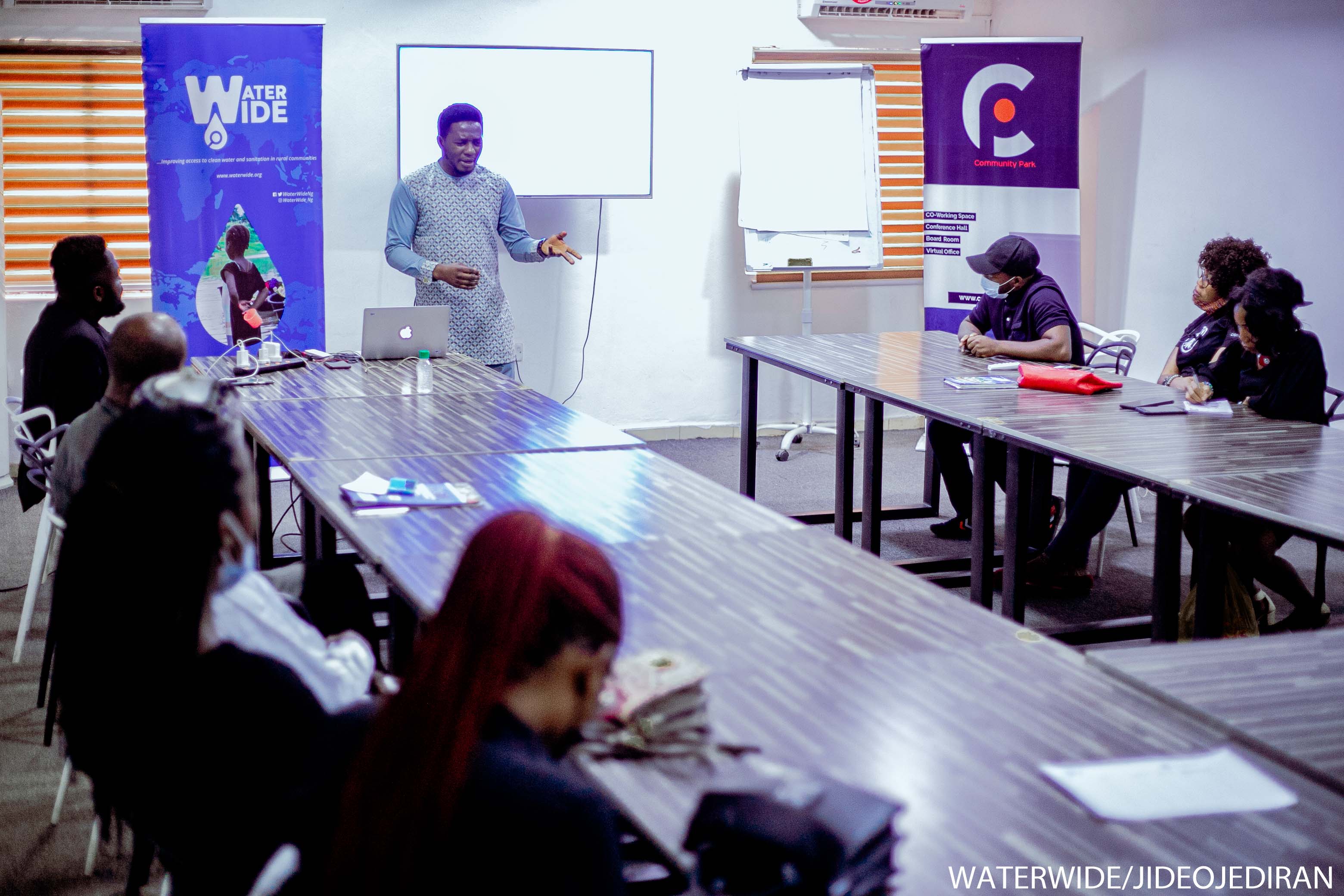The Realities of WASH Data - Relatório do Evento
- Dia
- Friday 5 March 2021
- Horário
- 10:00 (WAT)
- Local
- Abuja, Nigeria (Europe, Middle East & Africa)
- Organizadores
- Water With Development (WaterWide)
No sábado, 6 de Março de 2021, o décimo primeiro Dia dos Dados Abertos foi realizado por pessoas de todo o mundo através da organização de centenas de eventos para celebrar, promover e disseminar o uso de dados abertos. Graças aos generosos suportes, a Open Knowledge Foundation foi capaz de apoiar a realização de mais de 60 destes eventos através nosso esquema de minibolsas.
Este evento recebeu uma minibolsa da Open Knowledge Foundation graças ao suporte de Microsoft.

Como seu evento celebrou os Dados Abertos?
Water With Development, with support from Open Knowledge Foundation, organised an event tagged "The Realities of WASH Data". We had participant both online and onsite attend the event. a total of 32 people were onsite and 21 people online.
Data were drawn from UNICEF, Nigeria Bureau of statistics and Water Aid were used as reference points for the discussion where it said 3 in 10 people in Nigeria don't have safe water close to home, 3 in 5 people in Nigeria don't have a toilet of their own.; 4 in 5 people in Nigeria lack handwashing facilities at home. 60 million Nigerians, or 33 per cent of the population, do not have access to safe water. We displayed out communities in Plateau state, Kaduna and the country's capital Abuja, where it can be seen that 10 in 10 people had no access to safe water, 5 in 5 not having access to handwashing facilities, with our research, we discovered that lack of access to WASH facilities is greatly caused by corruption, access to data, which leads to low participation of citizens in governance and its processes. To change this narrative, we built the capacity of participants on budget data sieving, how to effectively use the Freedom of Information Act as a tool for demanding information on the project and providing oversight on its implementations, leveraging social media as a tool for engaging government officials and amplifying corrupt cases in their communities.
Garba, a participant highlighted how he used the FOI and social media to engage and amplify corrupt practices as well as amplify the living conditions of people around his community, but it came with a price, he was invited by the government security agency for questioning, but he was able to get out of it easily as he posted on social media, and tagged relevant CSOs which came to his aid with legal council.
Another participant, Precious Adigwe was concerned about how citizens in rural communities are able to have the knowledge of data since it is complex and it is hard for them to understand and make actionable decisions. Wilson Atumeyi explained that in such cases, it is even unwise to use their local languages to make print works, as some of them can not read their local dialect, so it is advisable to make creative designs that when you have a glance at them, you will know what it means without reading a text, then get someone that understands their language to take them on the session for better understanding.
Finally, we agreed to create a knowledge-sharing platform where members can share data sieved for better engagement and a coalition that would ensure that this information is used to drive transparency and accountability in governance.
To commemorate #OpenDataDay2021, #WaterWide had an engaging session with several development actors to discuss "The Realities of WASH Data", this sparked up conversations on how citizens and stakeholders can use data to curb corruption in the #WASH sector in Nigeria.
— WaterWide (@WaterWideNg) March 6, 2021
cc: @OKFN pic.twitter.com/SEMVVfzorv
Lições aprendidas no evento:
Data is very important to driving accountability and transparency in governance. It is essential to always engage people even if you think they have knowledge of the concept, because most of our participants did not know the concepts of open data, open government or freedom of information.
Porque você ama o Dia dos Dados Abertos?
It creates platform for dialogue and engagement on data and how citizens can leverage it for accountability.
